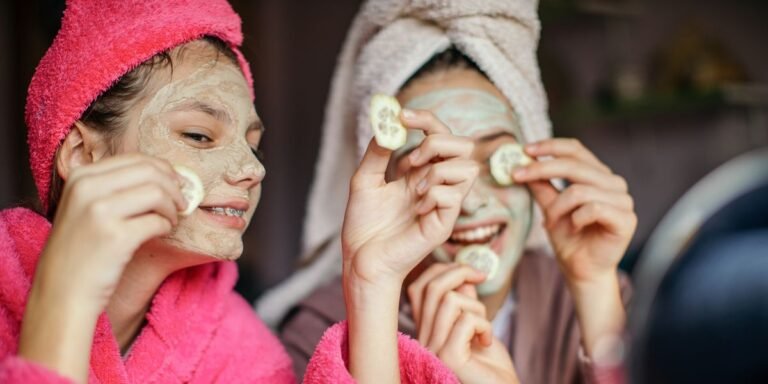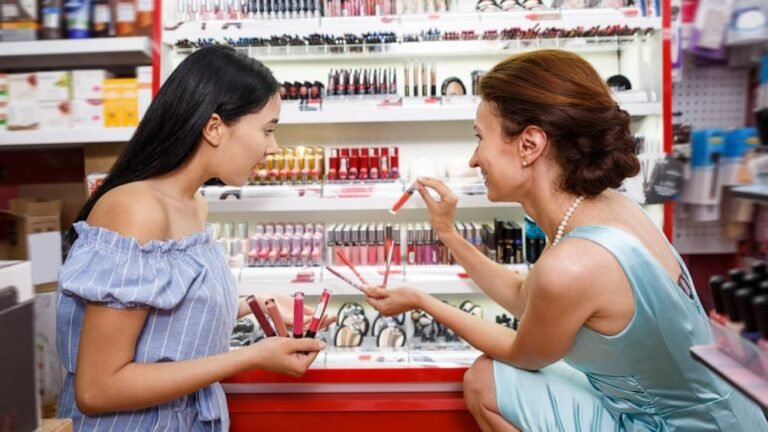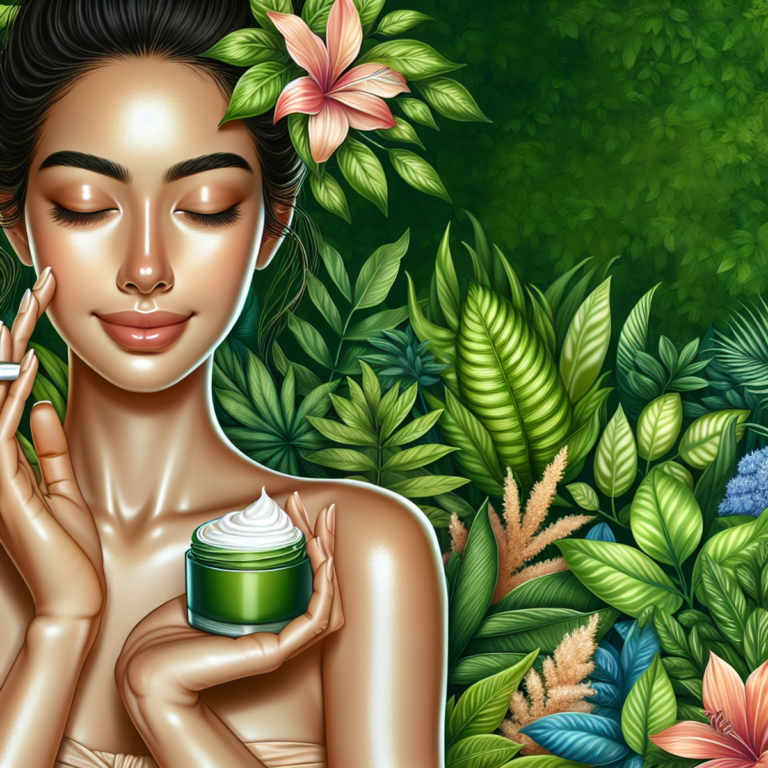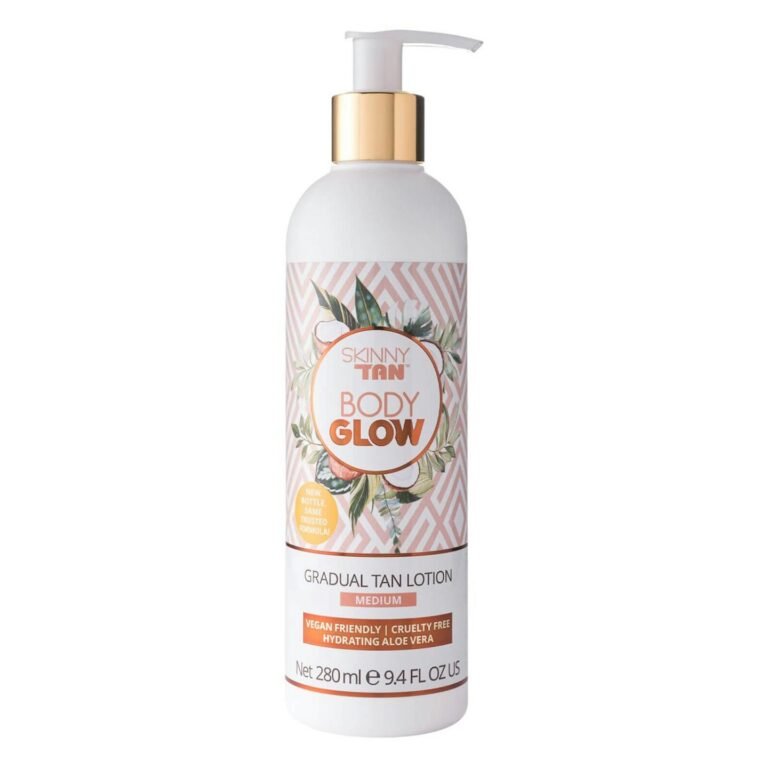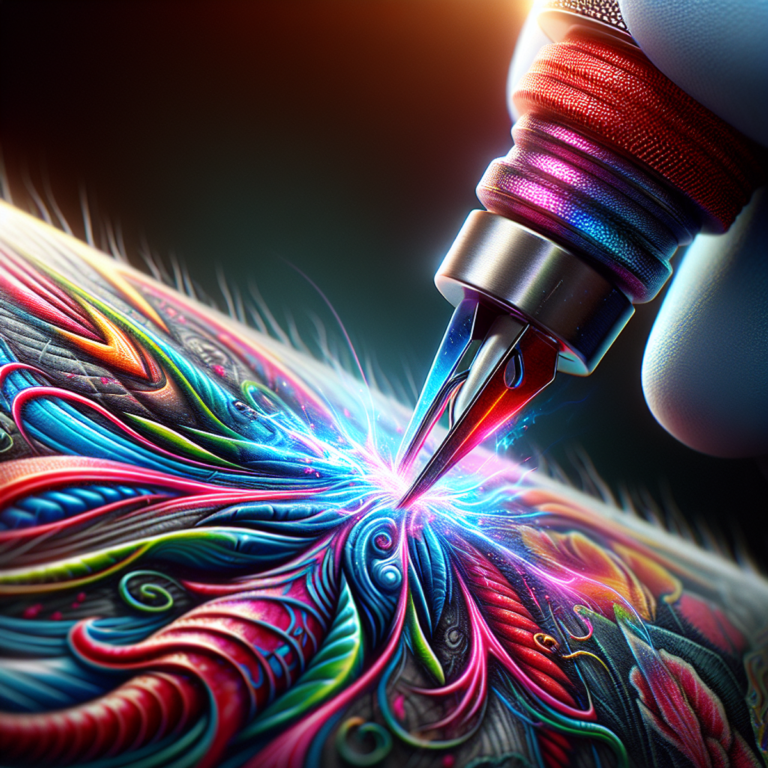Acne – treatments, causes and prevention
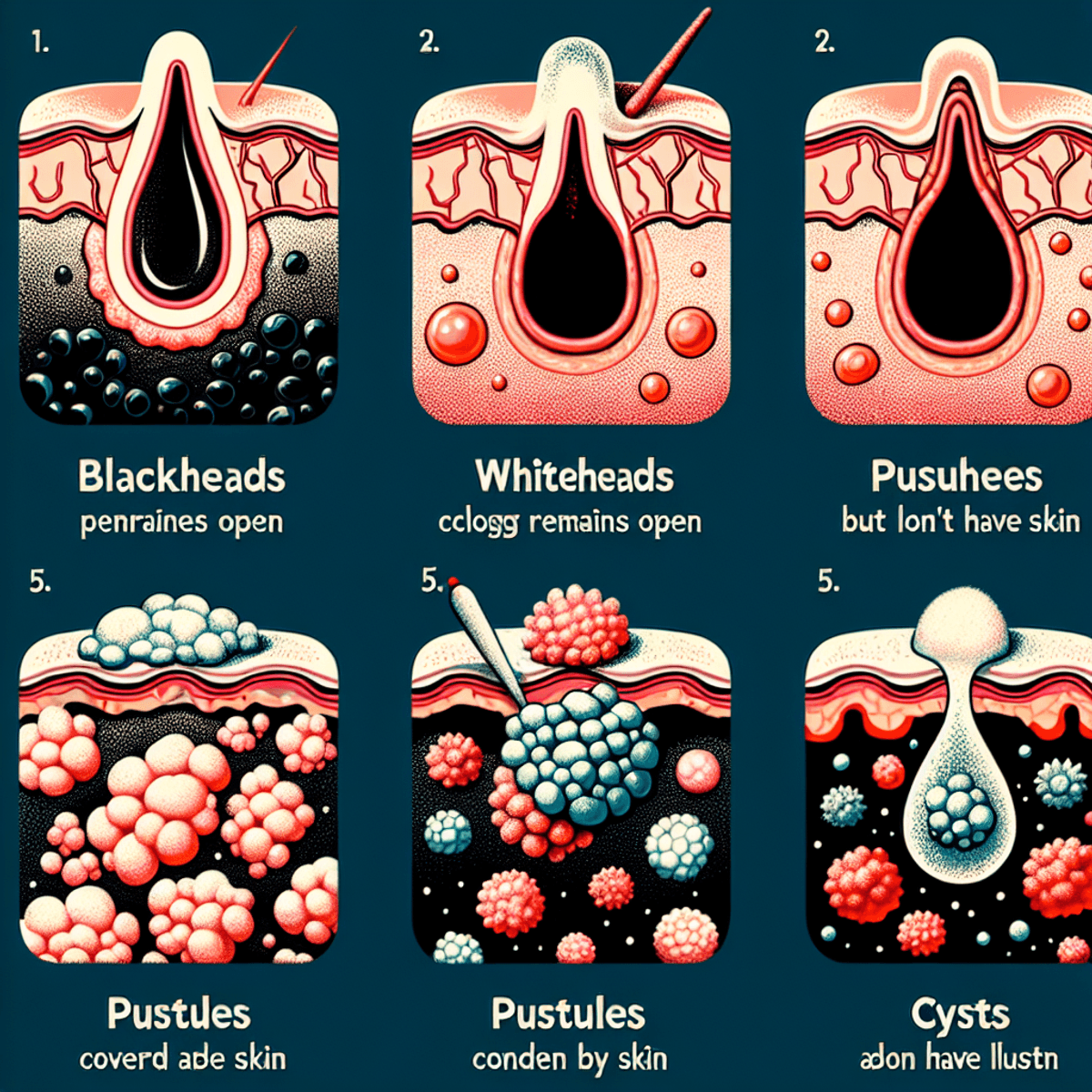
Introduction
Acne is a common skin problem where hair follicles get clogged with oil, dead skin cells, and bacteria. This can cause different types of pimples like blackheads, whiteheads, and cysts. It’s mostly seen in teenagers but can continue into adulthood, affecting people’s lives by lowering their self-esteem and mental health.
Knowing about the treatments, causes, and ways to prevent acne is important for managing and stopping breakouts. This knowledge helps you make better choices about skincare routines and medical treatments that work best for your skin type.
What You’ll Learn: In this article, we’ll cover:
- What causes acne
- The treatments available
- How to prevent it
- Natural remedies you can try
By understanding these topics, you’ll learn how to handle this annoying skin issue effectively.
Understanding Acne
What is Acne?
Acne is a common skin condition that happens when hair follicles get clogged with oil, dead skin cells, and bacteria. This can cause different types of pimples like blackheads, whiteheads, papules, pustules, cysts, and nodules. Acne can look different and be more or less severe for each person.
Types of Acne
Knowing the various kinds of acne can assist in finding the best treatment methods:
- Blackheads: These are open pores where the clog remains open, causing the oil to turn black.
- Whiteheads: These are closed pores where the clog is covered by skin, forming a small white bump.
- Papules: These are small red or pink bumps that are inflamed but don’t have pus.
- Pustules: These are similar to papules but contain pus, resulting in a white or yellow center.
- Cysts: These are large, painful lumps under the skin filled with pus; they often lead to scars.
- Nodules: These are hard lumps beneath the surface of the skin; they are severe and can cause significant discomfort and scarring.
What Causes Acne?
Several factors contribute to the development of acne:
Too Much Oil Production
Sebaceous glands produce an oily substance called sebum. When there’s too much sebum, it can clog pores and create a perfect environment for acne to form.
Buildup of Dead Skin Cells
Dead skin cells can pile up on the skin’s surface and mix with sebum, blocking hair follicles. This blockage is a main reason why acne forms.
Bacterial Growth
The bacterium Propionibacterium acnes thrives in oily environments and can grow inside clogged pores. This bacterial growth causes inflammation and sometimes infection, making acne worse.
Hormonal Changes
Hormonal fluctuations play a significant role in acne development:
- Puberty: Increased androgen levels during puberty stimulate sebaceous glands to produce more sebum.
- Polycystic Ovary Syndrome (PCOS): Women with PCOS often experience hormonal imbalances that can trigger acne.
- Pregnancy: Hormonal changes during pregnancy can exacerbate acne.
Other Contributing Factors
Several other elements can contribute to acne:
- Stress: High stress levels can increase hormone production such as cortisol, which may worsen acne.
- Diet: Consuming high-sugar foods and certain dairy products has been linked to increased acne prevalence.
- Family History: Genetics play a role; if your parents had acne, you might be more susceptible.
- Medications: Certain medications like corticosteroids or lithium can trigger or worsen acne.
- Environmental Factors: Humidity and pollution may exacerbate existing acne conditions.
Understanding these aspects provides a clearer picture of the complexities involved in managing this condition. Moreover, recent studies suggest that certain lifestyle changes can significantly help in managing and
Treatment Options for Acne
Hormonal Treatment Options
Hormonal contraceptives can play a significant role in managing female hormonal acne. These medications help regulate the hormone levels that often trigger breakouts. By balancing hormones, they reduce excess sebum production, which is one of the primary causes of acne.
- Combination Oral Contraceptives: These contain both estrogen and progestin. They are effective in reducing acne by suppressing androgen hormones that stimulate oil production.
- Progestin-Only Pills: While less commonly prescribed for acne, progestin-only options can also be beneficial for some women.
It’s essential to consult with a healthcare provider to determine the best hormonal treatment option tailored to your specific needs and medical history.
Severe Cases and Isotretinoin Treatment
Isotretinoin is a potent medication reserved for severe acne cases where other treatments have failed. It works by significantly reducing sebum production, shrinking oil glands, and decreasing inflammation. However, isotretinoin comes with potential side effects:
- Dry Skin and Lips: Almost all users experience extreme dryness.
- Birth Defects: Women must use two forms of birth control due to high risks of severe birth defects.
- Mental Health Concerns: Some patients report mood swings or depression.
Regular monitoring by a healthcare professional is necessary during isotretinoin treatment to manage these side effects effectively.
Professional Treatments for Acne Scarring or Active Lesions
Professional interventions can be highly effective for treating stubborn acne scars or active lesions. These treatments offer more intensive results than over-the-counter products:
- Laser Therapy: This targets deep acne scars by stimulating collagen production and resurfacing the skin.
- Chemical Peels: Useful for reducing oiliness and improving overall skin texture, chemical peels remove the top layer of skin to reveal smoother, less scarred tissue underneath.
Both treatments require professional consultation to assess suitability based on individual skin conditions.
Over-the-Counter Treatments for Acne
For mild to moderate acne, over-the-counter (OTC) products can be quite effective. Common active ingredients include:
- Benzoyl Peroxide: Reduces bacteria and dries out existing pimples.
- Salicylic Acid: Helps exfoliate dead skin cells and unclog pores.
- Sulfur: Often used in spot treatments, sulfur helps reduce oiliness and prevent new pimples from forming.
OTC treatments are generally well-tolerated but may cause dryness or irritation initially. It’s advisable to start with lower concentrations and gradually increase as needed.
Prescription Medications for Acne
When OTC treatments aren’t sufficient, prescription medications offer stronger alternatives:
- Topical Retinoids: These vitamin A derivatives help unclog pores and prevent future breakouts.
- Antibiotics: Both topical and oral antibiotics can reduce inflammation and bacteria.
- Oral Contraceptives: As mentioned earlier, these regulate hormones that contribute to acne in women.
Consulting with a dermatologist is crucial when considering prescription options to ensure appropriate treatment plans tailored to your specific condition.
Professional Treatments for Acne Scarring or Active Lesions
Professional interventions like laser therapy and chemical peels are effective in targeting stubborn scars left behind by past breakouts:
- Laser Therapy targets deep scars by promoting collagen production.
- Chemical Peels remove the outer layer of the skin, reducing oiliness and improving texture.
These treatments require professional consultation to ensure they suit your skin type and severity of scarring.
Severe Cases and Isotretinoin Treatment
Isotretinoin, also known by its brand name Accutane, is a powerful medication specifically reserved for severe acne cases where other treatments have failed. This prescription drug is a derivative of vitamin A and works by drastically reducing sebum production, preventing clogged pores, and decreasing inflammation.
Potential Side Effects
- Dryness: One of the most common side effects is extreme dryness of the skin, lips, and eyes.
- Liver function: Regular blood tests are required to monitor liver function due to the potential impact isotretinoin can have on hepatic health.
- Mental Health: Some users report mood changes and depressive symptoms as part of the Accutane side effects.
Monitoring Requirements
Due to its strength and side effects, isotretinoin requires strict medical supervision. Dermatologists typically conduct:
- Monthly check-ups
- Blood tests to monitor liver function and lipid levels
- Pregnancy tests for female patients, as isotretinoin can cause severe birth defects
Isotretinoin’s effectiveness in treating severe acne makes it a valuable option when over-the-counter treatments like benzoyl peroxide or salicylic acid and other prescription medications such as antibiotics or retinoids don’t yield satisfactory results. This comprehensive approach ensures that both the benefits and risks are closely managed.
Understanding these aspects helps you make an informed decision about whether isotretinoin could be the right path in your fight against severe acne. However, it’s essential to be aware of the potential side effects associated with this treatment. It’s also important to follow the prescribed guidelines carefully for optimal results while minimizing risks. For more detailed information about isotretinoin, you can refer to MedlinePlus.
Professional Treatments for Acne Scarring or Active Lesions
Managing acne effectively often requires a combination of approaches, particularly when dealing with scarring or persistent active lesions. Professional treatments can offer significant improvements where over-the-counter (OTC) and prescription medications might fall short.
Laser Therapy for Acne Scars
Laser therapy is a popular option for targeting stubborn scars left behind by past breakouts. This treatment works by using focused light to remove the outer layer of scarred skin while stimulating collagen production in deeper layers. The result is a smoother skin texture and reduced visibility of scars. However, multiple sessions may be necessary, and the cost can be substantial. For more information on various methods of managing acne scars, including laser therapy, you can refer to this resource.
Chemical Peels for Active Lesions
Chemical peels provide another professional intervention that can be useful in reducing oiliness and improving overall skin texture. These treatments involve applying a chemical solution to the skin, causing it to exfoliate and eventually peel off. The new skin that emerges is typically smoother and less oily. Chemical peels can also help unclog pores and reduce the severity of active lesions.
Prescription Medications for Acne
When OTC treatments like topical creams containing benzoyl peroxide or salicylic acid don’t yield satisfactory results, dermatologists often turn to prescription medications:
- Antibiotics: These reduce inflammation caused by bacteria.
- Retinoids: Help unclog pores by promoting cell turnover.
Both options are potent and usually more effective than their OTC counterparts but require careful monitoring due to potential side effects. For a comprehensive understanding of how to treat acne, including these prescription medications, you can explore this detailed guide.
Preventive Measures to Keep Acne at Bay
Adopting a consistent skincare routine tailored to your skin type is crucial for preventing new pimples from forming. Using gentle cleansing methods with non-comedogenic products can make a significant difference. Non-comedogenic means the product won’t clog your pores, which is essential for acne-prone skin.
Skincare Routine for Preventing Pimples
- Gentle Cleansing: Choose a mild cleanser that suits your skin type. Cleansing twice daily removes excess oil, dirt, and makeup without stripping your skin of its natural oils.
- Exfoliation: Incorporate a gentle exfoliant into your routine 2-3 times a week to remove dead skin cells that can clog pores. Look for products containing salicylic acid or glycolic acid.
- Moisturizing: Opt for lightweight moisturizers that are labeled as oil-free or non-comedogenic. Hydration is vital even for oily skin types, as it helps maintain the skin’s moisture barrier.
- Sun Protection: Use a broad-spectrum sunscreen every day. Sun exposure can worsen acne and lead to hyperpigmentation.
Lifestyle Changes to Avoid Breakouts
Maintaining a balanced diet rich in fruits and vegetables while minimizing high-sugar foods can have long-term benefits for your skin. Research suggests that high-glycemic diets may contribute to acne by increasing blood sugar levels and triggering hormonal fluctuations that promote oil production.
Balanced Diet:
- Fruits and Vegetables: Incorporate antioxidant-rich fruits and vegetables into your meals.
- Omega-3 Fatty Acids: Foods like fish, walnuts, and flaxseeds are known to reduce inflammation.
- Low-Glycemic Foods: Choose whole grains over refined carbohydrates and avoid sugary snacks.
Hydration:
Drinking plenty of water supports overall skin health by flushing out toxins and keeping the skin hydrated.
Stress Management Basics & Behavioral Adjustments Against Picking Pimples Too Much!
Stress is a known trigger for acne breakouts due to the increase in cortisol levels, which can lead to excess oil production. Implementing effective stress management techniques can help control stress-related breakouts.
Effective Stress Management Techniques:
- Mindfulness Exercises: Practices like meditation or deep-breathing exercises can reduce stress levels.
- Regular Physical Activity: Exercise not only reduces stress but also improves blood circulation, promoting healthier skin.
- Adequate Sleep: Ensure you get 7-9 hours of quality sleep per night to support overall well-being.
Resist the urge to pick at your blemishes even though it might feel tempting at times. Picking at pimples can lead to scarring and further inflammation, making the situation worse.
Behavioral Adjustments:
- Hands-Off Approach: Keep your hands away from your face as much as possible.
- Spot Treatments: Use spot treatments containing benzoyl peroxide or salicylic acid to target active breakouts without manual interference.
Implementing these preventive measures into your daily routine can greatly improve the condition of your skin and help you achieve clearer, healthier complexion over time.
Exploring Natural Remedies For Acne Relief And Long-Term Prevention Strategies
Navigating the world of skincare often leads to curiosity about natural remedies for pimples relief. Many individuals seek alternatives that are gentle on the skin and holistic in nature. Several home remedies are reputed for their anti-acne properties:
Tea Tree Oil
Tea tree oil is renowned for its antimicrobial and anti-inflammatory effects. It can:
- Reduce redness and swelling
- Combat acne-causing bacteria
When using tea tree oil, always dilute it with a carrier oil like coconut or jojoba oil to prevent skin irritation.
Aloe Vera Gel
Aloe vera gel, extracted from the aloe plant, is soothing and helps:
- Reduce inflammation
- Promote healing of acne lesions
Apply a thin layer of pure aloe vera gel directly to the affected areas.
Honey
Honey, particularly raw or manuka honey, offers antibacterial benefits. It can:
- Help cleanse pores
- Soothe irritated skin
Using honey as a face mask or spot treatment can aid in managing breakouts.
Green Tea
Green tea contains antioxidants that are beneficial for the skin. You can:
- Drink green tea regularly to reduce inflammation
- Use cooled green tea bags as a topical treatment
Apple Cider Vinegar
Apple cider vinegar (ACV) has acidic properties that may help balance your skin’s pH levels and fight bacteria. To use ACV:
- Dilute one part ACV with three parts water.
- Apply gently with a cotton ball.
Note: Always conduct a patch test before applying ACV to your face due to its strong acidity.
Zinc Supplements
Zinc is an essential mineral that has anti-inflammatory properties. Taking zinc supplements can help reduce acne severity, but consult with a healthcare provider before starting any new supplement regimen.
Holistic Practices
While natural remedies can be beneficial, integrating them into a broader skincare and wellness routine is crucial:
- Maintain a consistent skincare routine tailored to your skin type.
- Adopt stress management techniques such as mindfulness exercises or regular physical activity.
Incorporating mental well-being practices can also support long-term acne prevention. Stress often exacerbates acne, so activities like yoga or meditation can be valuable additions to your daily routine.
Natural remedies should complement traditional medical approaches rather than replace them entirely. If you wish to achieve lasting results, combining these home treatments with dermatologist-recommended products and professional advice will provide the best outcomes.
Understanding that everyone’s skin responds differently is key. What works wonders for one person may not have the same effect on another. Embrace this journey with patience and persistence, exploring different remedies until you find what suits your unique skin needs best.
Conclusion: Taking Charge Of Your Skincare Journey Towards Clearer Skin!
Managing acne effectively requires understanding your unique skin needs. Consulting a dermatologist can provide personalized treatment plans, but your proactive approach is equally significant.
Tips for Proactive Acne Management
- Seek Professional Help: Dermatologists can recommend treatments tailored to your specific condition.
- Trial-and-Error Approach: Experiment with different products and routines to discover what works best for you.
- Consistent Routine: Stick to a regular skincare regimen that includes cleansing, moisturizing, and targeted treatments.
- Monitor Your Diet: Pay attention to how certain foods affect your skin and adjust your diet accordingly.
- Stress Management: Incorporate stress-relief techniques like mindfulness or exercise into your daily routine.
Taking these steps can empower you to navigate the complexities of acne – treatments, causes, and prevention effectively. Understanding that everyone’s skin is unique will guide you in finding the most suitable solutions for clearer skin.
FAQs (Frequently Asked Questions)
What is acne and what are its common types?
Acne is a prevalent skin condition characterized by the presence of various types of blemishes on the skin, including blackheads, whiteheads, papules, pustules, cysts, and nodules. Each type varies in appearance and severity.
What are the primary causes of acne?
The development of acne can be attributed to several factors, including excess sebum production, accumulation of dead skin cells, bacterial growth (particularly Propionibacterium acnes), hormonal changes (such as those during puberty or conditions like PCOS), and other influences such as stress or diet.
What treatment options are available for managing acne?
There are various treatment options for acne management. Over-the-counter treatments often include topical creams with benzoyl peroxide or salicylic acid. Prescription medications may involve antibiotics to reduce inflammation or retinoids to promote cell turnover. For severe cases, isotretinoin is an option but requires careful monitoring due to potential side effects.
How can hormonal birth control help with acne?
Hormonal contraceptives can be beneficial for treating female hormonal acne by regulating hormone levels that contribute to breakouts. This treatment option may help balance hormones and reduce the frequency of acne flare-ups.
What preventive measures can be taken to avoid breakouts?
To prevent new pimples from forming, it is essential to adopt a consistent skincare routine using non-comedogenic products, maintain a balanced diet rich in fruits and vegetables while minimizing high-sugar foods, and implement stress reduction techniques such as mindfulness exercises or regular physical activity.
Are there any natural remedies for acne relief?
Yes, popular home remedies known for their anti-acne properties include tea tree oil and aloe vera gel. However, these should complement rather than replace traditional medical approaches for achieving lasting results. A holistic approach that includes skincare routines and mental well-being practices is encouraged.


